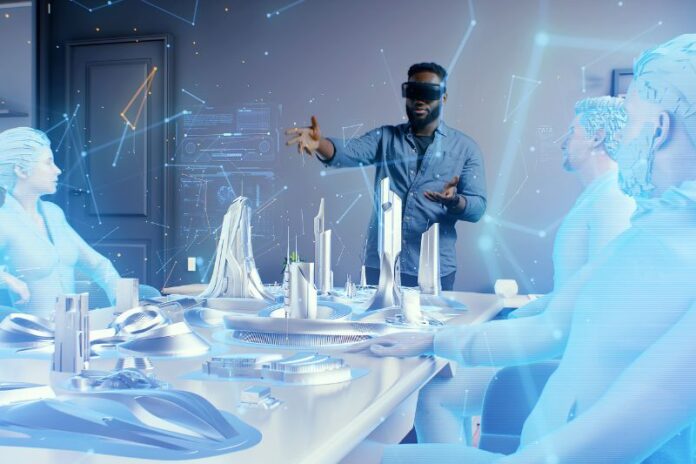This week, I tried out the Apple Vision Pro.
That’s the device you’ve been seeing on the news: the bulky, unwieldy headgear; the bizarre images of people attempting to manipulate the air in front of them; even some people driving while looking like Geordi La Forge from “Star Trek.”
It’s extraordinary.
As a piece of technology, I’ve never seen anything like it. It takes the apps on your phone and places them in the world around you: you can pin them in various rooms in your home.
This essentially makes television extraneous; it allows you to post lists of groceries on your refrigerator; it allows you to speak with people in real-time while navigating the real world.
The graphics are in the early stages, but they’re just as mind-boggling: one app called Encounter Dinosaurs introduces you into a prehistoric landscape, complete with dinosaurs.
Remember how terrible movie 3D is? This is nothing like that. It’s totally immersive, and reacts to you.
So, what does this mean?
On a raw level, it means that entertainment like movies and gaming will be leagues better than anything now available. You’ll be fighting with a lightsaber like Luke Skywalker in “Star Wars”; you’ll be surfing waves along with Kelly Slater. You’ll also be in landscapes far from your office or cubicle — you can already seat yourself in the midst of a nature landscape near Mount Hood, complete with soundscapes and full 360-degree view.
But as the technology progresses, it means something far more dangerous: the complete transformation of human relations.
Why? Because right now, everyone knows that you’re engaging in a mixed reality; after all, you look like an idiot wearing around scuba gear in broad daylight. But presumably, the technology will get smaller and less obtrusive. It’s not hard to foresee a future when people will have all the same capabilities and more, but projected into contact-lens type technologies.
And when that happens, everything changes.
Imagine walking around, being able to access answers to any question by referring to ChatGPT — without anyone knowing you’re doing so. Every conversation becomes a supplemented conversation. Every job interview becomes a test of AI rather than a test of the human being. Every date becomes a date between two AI prompts. Or imagine a shared reality in which everyone wearing the technology sees the filters projected by others — so that normal human appearance disappears, corrected by the technology toward the unobtainable ideal. Imagine an even more dystopian world in which Apple or another major corporation controls what you see and hear by barring certain content or mandating certain language.
The world of supplemented reality can open new vistas. But it can also become jet fuel for human frailty and sin, the same way smartphones have been. Imagine children growing up with such technology, removed from the normal consequences of life, their thinking atrophied by AI superpower, never having experienced the difficulty and beauty of normal human relationships.
We are opening a can of worms here. And that can of worms can’t be closed. All of which means that even as our society throws away classical virtue, nothing is more necessary than its rapid reinstitution. If we advance technology and give people new capacities while ignoring the natural limitations of human beings, we are likely to meet with the ugly consequences of unknown unknowns.





























